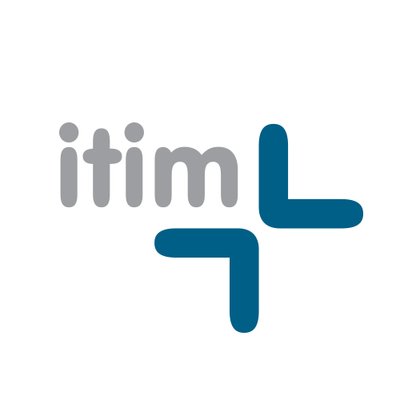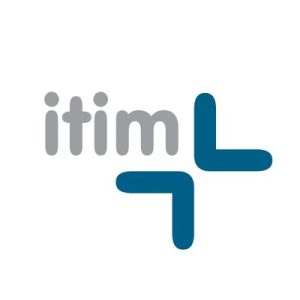Retailers have had access to generative AI tools for more than a year now, enough time for almost all to witness the new technology’s undeniable power. While the speed and scope of experimentation have varied across the industry, most retailers are now convinced that generative AI will rapidly improve productivity, easing industry-wide pressure on margins through various cost savings.
Some retailers have gone further, recognising generative AI’s potential to redefine how people shop. They’ve experimented in areas such as conversational search and personalised apps. The early success of these experiments has bred confidence that generative AI will significantly boost revenues. Enhancements like SEO-friendly automation of product pages and AI-written summaries of customer reviews are likely to lift sales in the short term.
The first year of the generative AI era has also prompted retailers to consider its long-term impact. Some foresee a reckoning, fearing that without fully exploiting the technology, they will be disintermediated. There are concerns that big tech companies will dominate the early stages of the shopping journey, such as inspiration and curation. Another fear is being outpaced by digital insurgents that are quicker at implementing generative AI effectively.
With so much in flux, quantifying the longer-term risks posed by these scenarios is challenging. However, executive teams don’t need a crystal ball to know that moving from experimentation to scaling should be their strategic priority for generative AI today. This applies to all retailers, regardless of how far they progressed with pilots in 2023 and early 2024.
Accelerated scaling is essential because shoppers are starting to adopt AI tools at scale in their daily lives, thanks to products like ChatGPT and Microsoft’s Copilot. Behind-the-scenes AI improvements at early-adopting retailers, such as natural language search and customer review summaries, are also beginning to reshape the shopping experience. If retailers don’t soon expand generative AI beyond a few test-and-learn corners of their website or internal use cases, they won’t keep up with the transformational benefits the technology will bring as it goes mainstream. Shopper expectations are already rising.
Retail’s thin margins are another reason scaling is so important. Generative AI-powered productivity enhancements and cost savings could be a game-changer for retailers leading the adoption, boosting their margins and providing the means to gain an edge over slower rivals.
Scaling generative AI is never easy. Although the rollout will be lighter than many big tech investments, with progress measured in months rather than years, the new technology will profoundly alter the nature of jobs across various retail functions. This creates a particular scaling challenge, but retailers should be energised by the task. The return on investment for generative AI initiatives is extraordinarily promising. Scaled generative AI projects are likely to dominate the top investment opportunities in terms of return multiples.
To move from standalone pilots to a more scaled approach, retailers should prioritise families of use cases that share similar objectives and technical foundations. This approach can accelerate and reduce the cost of development through greater reliance on reusable modules and streamline maintenance through updates that cascade down from the master use case. It can also demystify the generative AI journey for the broader organisation, give greater visibility to the adoption effort, and make it easier to set up teams to seize both short-term and longer-term opportunities.
One highly promising family of use cases centres on personalising the customer experience, including the way a retailer communicates with shoppers. Early personalisation efforts by one retailer at the forefront of strategic generative AI adoption have included an AI-powered conversational shopping assistant, which is on track to boost its conversion rate by seven percentage points or more and likely generate additional revenue amounting to 24 times the investment required.
Many retailers should be able to increase their revenue by 5% to 10% overall through a suite of personalisation initiatives, including shopping assistants, enhanced search, and localised shopper recommendations. Personalisation of shopper communication and experience isn’t the only area where initial experiments can become bold strategic moves via a focus on use case families.
Retailers have likely experimented with using generative AI to enhance and streamline their marketing efforts. Bigger rewards now lie in store for executive teams that wrap these initiatives into a broader push to automate marketing collateral generation, such as translation and repurposing of content, social media, and the creation of dynamic and personalised landing pages. This broader family of use cases can deliver marketing productivity gains of 30% to 40%.
Retailers can also reap rich productivity gains from a family-based approach in software development. Early experience has been compelling, with one early-adopting retailer realising 25%–40% productivity gains from a copilot that automates coding tasks, resulting in savings equivalent to more than 50 times the investment. A family-of-use-cases approach could extend these early gains across a broader canvas and longer time frame.
There’s another family of use cases, termed “supercharged employees,” which spans generative AI enhancements that reshape how retail employees work on the front line, in warehouses, and at headquarters. These measures could boost productivity by 5% to 25%.
The ultimate payoff from scaling generative AI will depend on passing three key tests. The change management test involves redesigning jobs entirely, both on the front line and at the corporate level, while keeping employees reassured, motivated, and engaged. The democratization test requires putting generative AI tools in the hands of all employees, not just those in the tech department, while centralising some generative AI-related capabilities to avoid inefficiencies. The talent test focuses on upskilling existing employees, empowering early adopters to share their experience, and continually updating new skills across the organisation.
Reflecting on the early days of the internet three decades ago, the impact of generative AI is likely to be on a similar scale, creating a fresh cohort of winners globally, but at an even faster pace. Over the coming months, there’s a huge opportunity for retailers to invest strategically and be in the vanguard of tomorrow’s AI-assisted pacesetters. It’s time to scale those early returns.
itim Group plc (LON:ITIM) is a SaaS-based technology company that enables store-based retailers to optimise their businesses to improve financial performance and effectively compete with online competitors. Itim adds retail value by helping multi-channel retailers optimise their business and their stores to improve financial performance and compete more effectively with the “Amazons”.


